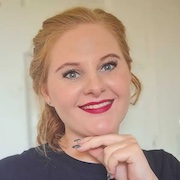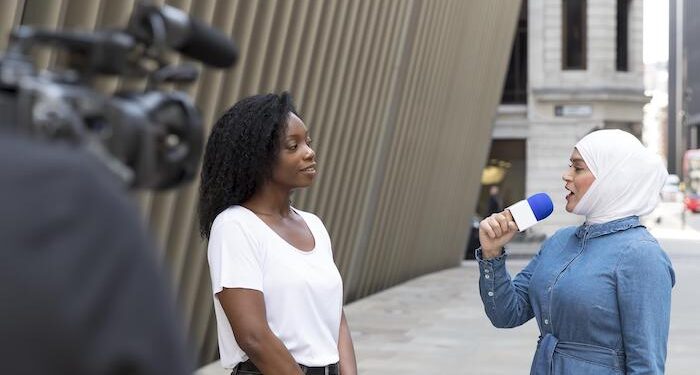Women are often the unsung heroes in media, where stories shape society, and truth drives change. Behind every woman journalist’s headline is a journey marked by unique challenges and victories, making mentorship and strong support networks not just helpful, but essential.
From guiding junior writers through newsroom dynamics to offering a lifeline in moments of doubt, mentorship empowers women journalists to survive and thrive, fostering a future where every woman’s voice can be heard loud and clear.
Women have been breaking stereotypes for decades
You just can’t keep a good woman down.
Like American memoirist, poet, and civil rights activist, Maya Angelou said: “Each time a woman stands up for herself, without knowing it possibly, without claiming it, she stands up for all women.”
Women will continue to make history since the dawn of time. In South Africa, prominent figures like Ruth First and Noni Jabavu are just a few examples of groundbreaking women writer-activists who paved the way for SA’s women journalists.
The importance of mentorship and support networks for women
There’s just something about one woman lifting another, whether professionally, personally or academically.
Now is the time for women to be more supportive of each other, to fix each others’ crowns and to be the change we want to see.
Mentorship and support networks for women in media can go a long way to bring about this change.
Through guidance and advice, women in journalism can share their own experiences, help others navigate career challenges, educate them to make informed decisions and help them develop skills.
Mentorship and support networks can also connect women in journalism, provide new opportunities, and expand their professional network. They can also give women journalists a confidence boost, motivate them, and help them persevere.
Role models
As women in journalism, we can also be role models, proving it is possible to break down barriers and overcome obstacles.
Collectively, women in media can challenge gender biases, provide emotional support during hard times, and advocate for women’s rights.
And it shouldn’t stop there. Newsrooms should be diverse and inclusive. Women from all walks of life should be given opportunities in the media space to be mentored.
I recently learnt about the importance of reverse mentoring too. Juniors should be given opportunities to mentor seniors as well. Senior journalists can learn much from the younger generation, especially regarding technology.
Reverse mentorship will increase diversity among women in journalism, break generational stereotypes and create innovation among generations.
Diversity and inclusion
My life changed when I joined a work culture celebrating diversity and inclusion. My mentors were, and are, women younger than I am, who are unafraid to challenge the status quo.
Their mentorship, support and motivation have given me the courage to do things I could never imagine. And now, I have made it my mission to pass the knowledge, support and mentorship they gave me to the next generation. What they taught me has been priceless.
I’m also excited to learn from younger generations to see how I can implement their ideas in our newsroom.
Briefly News shatters glass ceilings to empower more women in the newsroom
At Briefly News, we pride ourselves on empowering women as reporters and in senior and management roles.
Led by women
Currently, the newsroom is led by three women in management and two in senior roles. Furthermore, the newsroom’s 25-strong South African team comprises 20 women in various positions from junior, mid, and senior to management level in the management, editorial, social media, video and sales departments.
In my personal experience, women are exceptional leaders. We possess the qualities that make up good leaders, such as empathy, self-awareness, self-regulation, social skills and motivation, to name a few.
The publication also has an annual special project titled Women of Wonder, featuring women shattering glass ceilings and succeeding despite the challenges they face.
Our goal is to empower the women within our organisation and those outside. If we want to see change, we need to be the change. It starts with us…women.
Do women unequivocally have equal opportunities in journalism? Not yet. But we have come a long way.
Can we be the change we want to see? Yes.
However, we can only do so collectively through the right mentorship programmes and support networks.
 Rianette Cluley is the managing editor of Briefly News. Previously, she worked as a journalist and photographer for award-winning publications within the Caxton group. She also attended the Journalism AI Academy powered by the Google News Initiative and passed a set of trainings for journalists from Google News initiative. Briefly News is a South African digital media and news platform founded in 2014. It is one of South Africa’s largest news and entertainment websites by audience. Briefly News is a part of Legit (ex-GMEM), a digital media holding operating in South Africa, Nigeria, Kenya, Ghana and worldwide.
Rianette Cluley is the managing editor of Briefly News. Previously, she worked as a journalist and photographer for award-winning publications within the Caxton group. She also attended the Journalism AI Academy powered by the Google News Initiative and passed a set of trainings for journalists from Google News initiative. Briefly News is a South African digital media and news platform founded in 2014. It is one of South Africa’s largest news and entertainment websites by audience. Briefly News is a part of Legit (ex-GMEM), a digital media holding operating in South Africa, Nigeria, Kenya, Ghana and worldwide.














